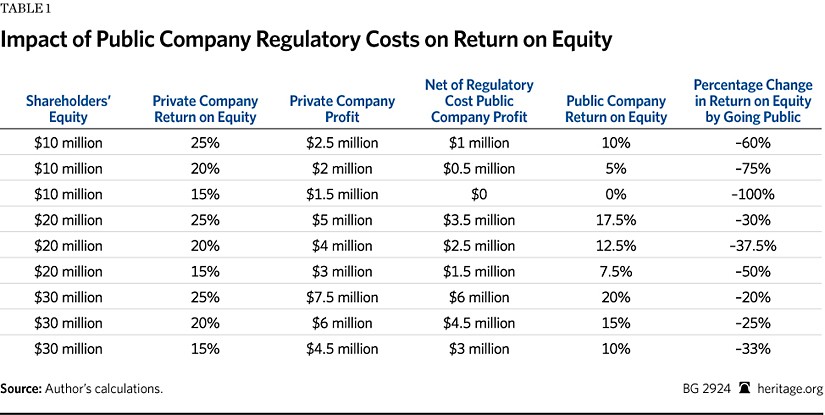SEC Issues To Consider When Going Public
Post on: 16 Март, 2015 No Comment

IPO Prospectus and Exchange Act Reporting:
The rules of the Securities Exchange Commission (SEC) subject public companies to extensive disclosure and reporting obligations. The company must prepare a detailed prospectus during the IPO process.
Once public, the company is subject to the Securities Exchange Act of 1934 (Exchange Act) and have extensive periodic annual and quarterly reporting obligations as well as current disclosure obligations upon the occurrence of certain specified events.
Companies are also subject to rules regarding meetings of stockholders and the related proxy solicitation process. In addition, the company is required to publicly file a number of documents, including its governing documents and material contracts.
Financial Statements:
The IPO prospectus must contain audited consolidated financial statements of the company for the past three years (plus any interim quarterly unaudited financial statements for the period since the end of the last fiscal year). Compiling these financial statements can be a very time-consuming process. The company should coordinate this process with its independent auditor as far in advance of the IPO as possible.
One issue that might require special attention is cheap stock. The SEC often scrutinizes the compensation expense associated with discounted stock grants and the valuation methodology employed by companies in connection with these equity award grants. The company should be able to defend its valuation of all equity awards made during at least the 12-month period before an IPO filing by providing a detailed analysis of the substance and process of its valuation methodology.
Executive Compensation:
A public company is subject to extensive disclosure obligations relating to its executive compensation practices. A company contemplating an IPO should carefully review its executive compensation and benefits practices and might consider engaging a compensation consultant to ensure that its compensation practices, including equity and other noncash incentives, are appropriate for a public company. Private company compensation practices are often inappropriate for a public company and often require extensive revisions.
Investor Relations:
The IPO candidate will need to establish detailed public communications policies and review its website carefully to ensure that it is appropriate for a public company. Care must be taken by the company, its stockholders and its employees to avoid actions or communications to the public that could confuse or mislead investors or violate Regulation FD, which regulates communications by public companies of material nonpublic information.
Independent Board:
SEC regulations and stock exchange listing standards mandate that the board of a listed company be comprised of a majority of independent directors. The company needs to carefully consider the appropriate amount and extent of board compensation and director and officer liability insurance, especially as it seeks to attract new independent directors.
Board Committees:
Stock exchange listing rules mandate that companies have an audit committee composed of at least three independent members, one of whom must qualify as a financial expert. SEC regulations require that the audit committee approve all related party transactions.
In addition, the NYSE listing rules require companies to establish separate nominating and corporate governance and compensation committees or delegate their responsibilities to other fully independent committees. NASDAQ listing rules permit a majority of the companys independent directors to carry out the responsibilities of these same committees.
Written Policies:
The SEC requires a public company to disclose whether its board has adopted a written code of ethics. Although not required, a company also should adopt a specific written policy to ensure the prevention of insider trading.
Independent Auditors:
The IPO candidate needs to retain an independent auditor that is registered with the Public Company Accounting Oversight Board. The boards audit committee must pre-approve any services provided by the auditor.
Internal Control Over Financial Reporting:
Management of a public company must carry out an annual assessment of the companys internal control over financial reporting and report the results of that assessment in the companys publicly filed annual reports. Changes in internal control also must be identified on a quarterly basis.
In addition, to the extent that a public company becomes an accelerated filer (i.e. its public float is greater than $75 million), the companys independent auditor will be required to file an attestation of managements assessment. This is a process that should be coordinated with the companys independent auditor well in advance of the company becoming an accelerated filer.

Disclosure Controls and Procedures:
The SEC requires a listed company to design disclosure controls and procedures to ensure that information required to be disclosed and filed by the company is recorded, processed, summarized and reported, within the time periods specified in the SECs rules and forms. In addition, as of the end of each fiscal quarter, management, together with the CEO and CFO of the company, must evaluate the effectiveness of the company’s disclosure controls and procedures.
Executive Officer Certifications:
The CEO and CFO of a public company must certify its financial statements included in the IPO prospectus and future periodic reports. A knowingly false certification can lead to criminal liability.
Loans to Executive Officers and Directors:
A public company is prohibited from making loans to any of its directors or executive officers, either directly or indirectly. Any loan extended before the filing of the IPO registration statement should be repaid prior to the IPO.
Say on Pay:
SEC rules require a listed company to allow its stockholders to vote in a nonbinding manner on executive compensation. The vote must occur at least once every three years, although stockholders can vote to increase the frequency. The company must also publicly disclose whether they followed stockholders’ wishes.
Taking a company public is a time-consuming process. The key to a successful IPO is to engage in proper planning and preparation to ensure the company will be in a position to move quickly when capital market conditions are favorable. A less-than-diligent effort in planning and preparing can send mixed signals to the marketplace and risk the benefits of a successful IPO.
**********
About the Authors
Shane Segarra is an associate in the Ackermann Senterfitt Corporate Practice Group. He assists clients in a wide range of corporate work including securities and mergers and acquisitions.














